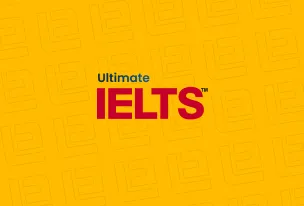There are various categories under which the Schengen Visa can be granted, including visas for travel, business, study, and family visits. A valid passport, proof of round-trip travel, proof of lodging during their stay in a Schengen country, and adequate funds to maintain themselves while they are in a Schengen country are all requirements for those with a Schengen visa.
English Literature: Definition, Best Universities with this Major and Future Career Opportunities
What is a Schengen Visa?
The Schengen Visa is a type of visa that allows the holder to enter and remain in the European Schengen Area member nations. The 26 nations that make up the Schengen Area have agreed to do away with border checks and permit their people and those with Schengen visas to travel freely.
Benefits of Obtaining a Schengen Visa
Obtaining a Schengen visa has several advantages for travelers who want to explore Europe.
Get to know Jardine Scholarship Deeper: Requirements until the 2024 Registration Deadline
1. Free Travel
You can travel to all member countries with a Schengen visa without needing to apply for individual visas for each one. You are free to travel about and discover nations like France, Italy, Spain, Germany, and others.
2. Extended Stay Duration
The typical validity of a Schengen visa is 90 days out of every 180 days. This gives you plenty of time to leisurely explore Europe.
3. Business Travel
Schengen visas can also be used for business travel, including going to conferences, visiting clients, or forming alliances with businesses in Schengen nations.
4. Access to Non-Schengen Countries
You can travel to some neighboring non-Schengen nations with a Schengen visa, including Switzerland, Norway, and Iceland.
The Importance of Knowing the Differences TOEFL, IELTS, TOEIC, and PTE
Schengen Visa Requirements
To obtain a Schengen visa, there are several requirements that need to be fulfilled.
Effective Ways to Learn English like Native Speaker
1. Application Form
You must complete the Schengen visa application form with your contact information, the reason for your trip, and the dates you intend to take it.
2. Passport
At least three months should pass between the date of your intended departure from the Schengen region and the expiration date of your passport. Make sure your passport includes blank pages for stamping visas.
3. Identity Documents
As confirmation of identity, enclose a copy of an active ID card or national identity card.
4. Financial Proof
You must show that you have the resources necessary to pay for your travel and lodging costs within the Schengen region. Bank statements, employment letters, or other forms of income documentation can serve as this.
5. Travel Insurance
You are required to have travel insurance with a minimum level of coverage of €30,000 for emergency medical costs and repatriation that covers your whole stay in the Schengen region.
6. Accommodation Proof
Include documentation of your hotel reservations or a letter of assurance from the host you will be staying with to prove where you will be staying during your travel to the Schengen region.
7. Travel Tickets
Include copies of your round-trip tickets or other proof of ticket purchase to demonstrate that you have a well-thought-out travel itinerary.
8. Travel Itinerary
Include a thorough trip itinerary with information on the locations you’ll be visiting, the days you’ll be there, and the modes of transportation you’ll be using.
9. Supporting Documents
Include any supporting documentation you may have, such as a letter of invitation, evidence of membership in an organization, or letters of recommendation from employers.
5 Best Countries to Study Abroad
Schengen Visa Application Process

16 List of Best Universities in the World in 2023
1. Document Collection
Amass all the documentation needed in accordance with the specifications.
2. Registration
Register online or in person at the embassy or consulate of a Schengen nation near you. Carefully complete the application form and attach the necessary supporting documentation.
3. Biometrics
A passport-sized photo and your fingerprints are typically needed as part of the application procedure.
4. Payment
In accordance with the instructions given by the consulate or embassy, pay the application cost for a visa.</span>
5. Interview
You could occasionally be needed to appear in person for a consular officer interview to discuss the reason behind your journey.
6. Decision Making
You will have to wait for a decision about your visa after submitting your application. Usually, this takes a few weeks.
7. Visa Collection
If your visa application is accepted, you can pick it up at the Schengen country’s consulate or embassy. At the time of collection, make sure to have all the necessary original documents with you.
Study in Europe? Choose Switzerland as the Best Destination!
Tips to Maximize Your Schengen Visa Opportunities
To increase your chances of obtaining a Schengen visa
Interesting Facts About the Chevening Scholarship You Need to Know
Prepare Documents Thoroughly
To avoid any mistakes or omissions, make sure you complete all the necessary documents and double-check them.
Apply Early
To give the authorities enough time to process your visa application, try to submit it several months before your anticipated departure date.
Be Honest and Open
Give truthful and accurate information regarding your trip’s objective while completing the application form or showing up for an interview. Don’t give out information that is inaccurate or deceptive.
Provide Additional Information
Provide any further documentation that may be required to substantiate your need for travel, such as a receipt for the payment of your airline tickets or tentative hotel arrangements.
Maintain Travel Records
If you have traveled to Schengen nations before, make sure your record is clean. This can support your assertion that you are an actual traveler and raise your chances of getting a visa.
Utilize Travel Agency Services
Consider enlisting the services of an established travel agency if you find applying for a Schengen visa to be difficult. They can help you compile documentation, complete forms, and offer helpful guidance.
Check Destination Country Requirements
The needs for visas vary slightly throughout the Schengen nations. Make sure to carefully review the documentation requirements of your destination nation and prepare as necessary.
List of Fully Funded Scholarships in Canada
e=”font-size: 16px;”>The Schengen visa is the key to simply and freely traveling throughout Europe. You can improve your chances of getting a Schengen visa by adhering to the application process precisely, ensuring that all necessary documents are prepared, and satisfying the set conditions.
It’s crucial to keep in mind that each nation has slightly different application procedures, so be sure to get the most recent details from the consulate or embassy of your intended location. If you carefully follow this instructions, you will be able to get a Schengen visa that will let you freely and confidently travel throughout Europe.




